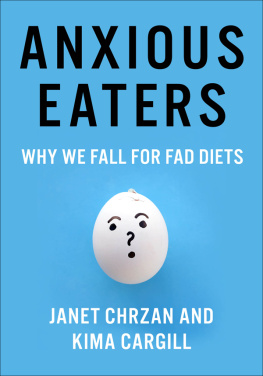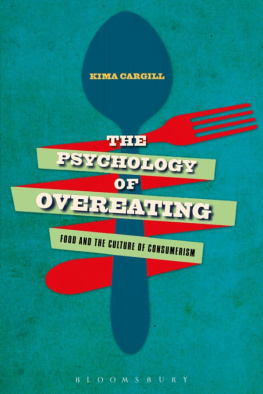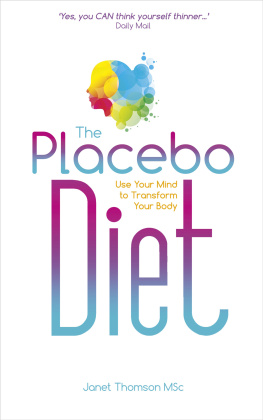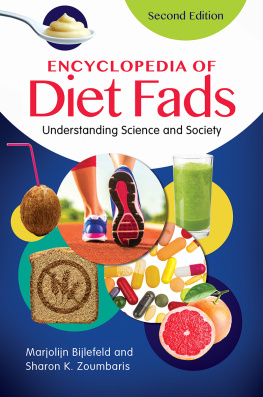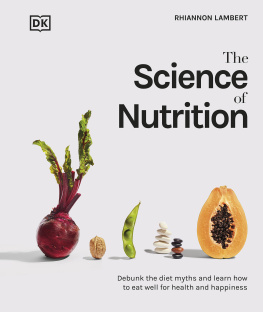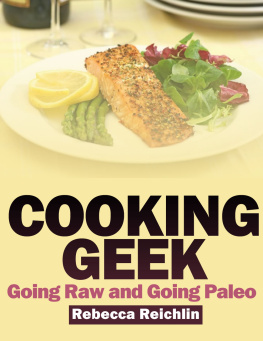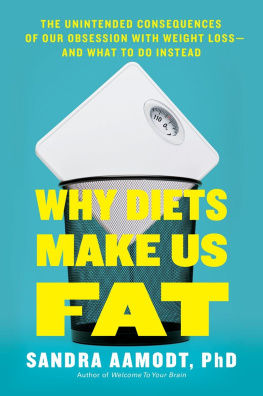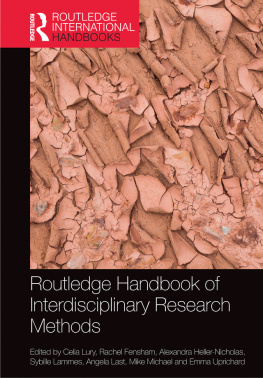Table of Contents
Anxious Eaters
Arts and Traditions of the Table
Arts and Traditions of the Table:
Perspectives on Culinary History
Albert Sonnenfeld, Series Editor
For a complete list of titles,
Anxious Eaters
Why We Fall for Fad Diets
Janet Chrzan and Kima Cargill
Columbia University Press
New York
Columbia University Press
Publishers Since 1893
New YorkChichester, West Sussex
cup.columbia.edu
Copyright 2022 Columbia University Press
All rights reserved
EISBN 978-0-231-54980-6
Library of Congress Cataloging-in-Publication Data
Names: Chrzan, Janet, author. | Cargill, Kima, author.
Title: Anxious eaters : why we fall for fad diets / Janet Chrzan, and Kima Cargill.
Other titles: Why we fall for fad diets
Description: New York : Columbia University Press, [2022] |
Series: Arts and traditions of the table: perspectives on culinary history |
Includes bibliographical references and index.
Identifiers: LCCN 2021058012 | ISBN 9780231192446 (hardback) |
ISBN 9780231549806 (ebook)
Subjects: LCSH: Food habitsSocial aspects. | NutritionSocial aspects. |
DietSocial aspects. | Reducing dietsSocial aspects. |
Reducing dietsPsychological aspects.
Classification: LCC GT2855 .C47 2022 | DDC 394.1/2dc23/eng/20220318
LC record available at https://lccn.loc.gov/2021058012
A Columbia University Press E-book.
CUP would be pleased to hear about your reading experience with this e-book at .
Cover design: Julia Kushnirsky
Cover photo: Natalia Deviatiarova / Shutterstock
Contents
Chapter One
Why We Love Fad Diets
Chapter Two
Food Removal Diets
Chapter Three
Food Addiction
Chapter Four
Clean Eating
Chapter Five
Paleo Diets
Chapter Six
Final Thoughts
A Fine Sufficiency
This book is dedicated to the memory of Dr. Don Yoder: folklorist, mentor, renowned professor... and friend. At the end of a meal, he would say, Thank you, Ive had a fine sufficiency. This old-fashioned phrase originates among the Pennsylvania Quakers. It was used to explain to a child that they have had enough to eat when they ask for more (example: Youd like another piece of cake? No, youve had a fine sufficiency of cake) and to gently remind them not to be greedy. Don used it differently; with him, it meant that he was replete and happy. Hed had enough and didnt need more. That phrase sang through Janets head again and again while writing this book, and it probably created the emergent ponderings that led to the books existence. What does it mean to have enough and to have enough food? How do we know when to put on the brakes and stop eating? Almost all fad diets presume that humans cant do thatthe core premise of their practice is the need to police the self because the self never has enough. Without strict control, denial, and arcane rules, the body swells with fat and must be regulated by special diets. But thats not usually the case, and certainly not for Don. He knew when hed had enough to eat, and he knew to be grateful for the meal. He taught Janet something immensely valuable about living in the world, enjoying its wonders, and accepting limits. He taught her to appreciate a fine sufficiency and to be grateful. Thank you, Don.
Of course, there are many others to be grateful for, because without their assistance this book would not exist. The greatest thanks are due to Jennifer Crewe, editor extraordinaire, who suggested that we write the book wed been intellectually doodling about, and who guided and shepherded it through a long gestation and multiple iterations. She was immensely patient and supportive, and without her kind counsel it would not have been completed. Sheniqua (Nini) Larkin, executive assistant to the associate provost and director of Columbia University Press, made sure the Is were dotted and the Ts crossed and did so with absolute good humor, efficiency, and professionalism. Our copy editor, Susan Zorn, cleaned up the mess without too much psychological damage to the authors and in record time. Four primary peer reviewers provided valuable advice that corrected our assumptions and errors, tightened our reasoning, and improved the book immensely.
Many people made it possible to write this book. Jennifer Stock, then Director of the Helen Kate Furness Library, kindly ran the county library numbers to determine which diet books were the most popular among patrons. Thanks as well to the Board of Directors of the Delaware County Libraries (DCL) for allowing these data to be used for this project. We must also thank the producers and patrons of the Oakmont Farmers Market, who have provided hundreds of hours of conversation, surveys, and interviews about what it means to be a concernedand anxiouseater. Over the years weve presented these ideas at meetings and seminars, and our panel companions and collaborators have sharpened our thinking, expanded our perspectives, and challenged our assumptions. Without Leighann Chaffee and Sierra Clark and the many members who attended our Association for the Study of Food and Society (ASFS) panels over the years (and asked penetrating, intellectually stimulating questions), this book would have been impossible to write.
Gratitude and thanks to Warren Belasco, Fabio Parasecoli, Carole Counihan, Jackie Ricotta, Rachel Black, Ken Albala, Amy Bentley, Scott Alves Barton, John Brett, Leigh Bush, Miriam Chaiken, Charlene Compher, Emily Contois, Sheila Crye, Jon Deutsch, Alice Julier, Ellen Lampert, Leslie Sue Lieberman, Marci Pelchat, Gloria Rodriguez, Jamie Schler, Christy Shields, Rosemary Trout, and William Woys Weaver: all of them provided, at one time or another, Ah-ha! conversations that shaped our thinking about fad diets. We are also grateful for all of the members of the ASFS for providing a warm welcome to early career food scholars, as well as editorial support and mentorship. Special and enduring thanks to Elizabeth (Beth) Barden, nutritional anthropology partner in crime, for a delicious gift of the Enid Blytoninspired volume Five Go Gluten Free and for thirty years of inspiring chats about food and the human condition.
Perhaps youve had an experience like this: youre out for lunch with a friend and you notice that hes lost weight and seems to be in very good spirits. As you review the menu your friend explains that he cant eat much of it because hes on a special diet, and then he tells you about his new food routine in detail. You listen, rapt, since your friend is so enthusiastic and besides, he seems to be looking pretty good, so maybe the diet works? It seems pretty complicated, however, with the need to eat particular foodsand avoid other particular foodsat specific times of day. It sounds like hes only eating a few foods because he needs to avoid so many, particularly carbohydrates, or fats, or fruits, or dairy. He explains the biology of the diet, and how its rooted in deep evolutionary history, so that hes only eating foods that are specifically good for his DNA. Hes returning his lifestyle to an earlier, healthier mode that ensures a clear mind, fulfilling sleep and will avoid illness and lengthen his life span. He assures you that we should all be adopting this diet if we are going to be our very best selves. After that, he orders a burger, no bun, no condiments or cheese, and switches out the accompanying fries for steamed broccoli. A salad of iceberg lettuce and Ranch dressing and a dessert of gluten-free chocolate cake, and hes a happy eater. You remain a bit confused, however, about how his lunch choices reflect the diet he had explained.

